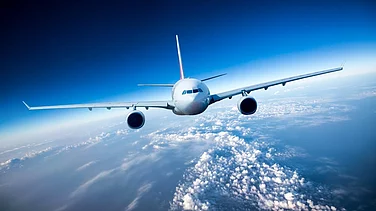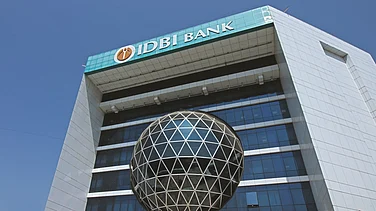Indian exporting firms need to gear themselves up to comply with new EU norms as the European Union is moving towards a paperless customs process from June 3 this year.
The development assumes significance for domestic exporters as the European Union (EU) accounts for about 17 per cent of India's total merchandise exports. In 2022-23, India exported goods worth USD 75 billion to EU as against the country's total exports of USD 451 billion in that financial year.
The EU has proposed to implement the second phase of its Import Control System (ICS) from June 3 this year. ICSD 1 was applicable to the air mail and express deliveries from March 15, 2021, and then it was extended to air cargo from March last year.
The 'ICS2' will now be extended to cover all type of imports using ships, trains, trucks also on June 3, 2024. First two phases covered 15 per cent imports into the EU, third and final phase cover balance 85 per cent of the imports by value.
According to a European Commission release, economic operators carrying goods by sea, inland waterways, road and rail will have to submit a complete Entry Summary Declaration (ENS) dataset to ICS2.
The new system will apply to all goods, including physical goods like manufactured products, raw materials, agricultural products, and even live animals. It will also apply to letters, parcels, and express deliveries.
The new system enables the EU to move towards a paperless and risk-based import compliance. It eliminates the need for paper declarations for most goods and simplifies the customs clearance process based on risk assessment.
Economic think tank Global Trade Research Initiative (GTRI) said, "The Indian exporters, EU-based importers and carriers will now be required to submit data electronically through the ICS2 system, replacing older paper-based declarations."
It added that the new system is streamlining the customs clearance process by eliminating the need for physical paperwork at borders.
Paper documents may be required only for a small category of specific types of goods or certain trade lanes. Also, while the EU customs goes digital, it recognises that international trade might still involve paper documents, like bills of lading or commercial invoices, it said.
GTRI Co-Founder Ajay Srivastava said that the EU's system will also focus more on checking goods that might be risky, so that safe goods can move through customs faster.
The risk assessment for each shipment is based on various factors, including the type of goods, the origin and destination countries, the trader's compliance history, and any intelligence or risk indicators available.
"Indian exporters need to be well-prepared and compliant with the new system that will kick in from June 3, 2024. They need to provide accurate and complete commodity information for the product being shipped, including the Harmonized System (HS) code, detailed descriptions, value, and weight," he said.
Data provided to ICS2 should align with information on commercial invoices, bills of lading, and other accompanying documents.
According to the new system, the data upload to ICS2 should happen before the goods arrive in the EU, often through the carrier's system, and late submissions can lead to delays and potential penalties.
He added that exporters have to keep copies of all submitted data and related documents for potential inspections or audits and they should be prepared to answer questions and provide further information if requested by customs officials.
Incorrect or missing data, late submissions, or failure to cooperate with authorities can result in financial penalties for the shipper, GTRI said, adding inaccurate or incomplete information can lead to delays in customs clearance, impacting shipping deadlines and potentially adding costs.
"Ship or air carriers and postal operators have the main responsibility for filing the ENS with ICS2 before the goods arrive in the EU. This includes ensuring all data is accurate and timely, as they face penalties for non-compliance," it said.
"While carriers bear the brunt of responsibility for filing the ENS and penalties for non-compliance, the accuracy of the information ultimately comes from the exporter. Therefore, both parties have a vested interest in ensuring data quality and timely submission to avoid delays and potential fines," it added.
GTRI said that Indian exporters should start their preparations as non-compliance with ICS2 regulations or errors in data submission could lead to delays in customs clearance and potential fines, resulting in financial losses and operational disruptions.
To avoid these, Srivastava said that Indian exporters must register in the ICS2 system and train their personnel on the new requirements and procedures.
This may involve fees for registration and training programmes. They also need to upgrade their existing software and IT infrastructure to comply with ICS2 data formats and electronic submission requirements.
"Some Indian exporters may need to seek professional support to navigate the complexities of ICS2 and ensure compliance. Smaller businesses with limited resources might struggle to adapt to the new system as quickly as larger competitors, potentially putting them at a disadvantage," he said.
Overall, early preparation, investing in technology solutions, and seeking guidance from relevant trade bodies can help Indian exporters benefit from the new system.
Further, GTRI said that the EU frequently intercepts Indian exports of chilies, tea, basmati rice, milk, poultry, bovine meat, fish, chemicals, generic drugs, and ayurvedic drugs to EU on various grounds and the domestic exporters and the government must closely monitor how the EU treats such products under this new system.
For Indian exporters and the Indian government, adapting to this new system is not just a requirement but an opportunity to streamline their export processes and strengthen their position in the EU market, it added.
India's imports from the EU stood at USD 61 billion in 2022-23. The two-way trade increased to USD 136 billion. The EU is one of the largest trading blocs for India. Both sides are also negotiating a free trade agreement to further boost trade ties.


























.jpg?w=200&auto=format%2Ccompress&fit=max)




